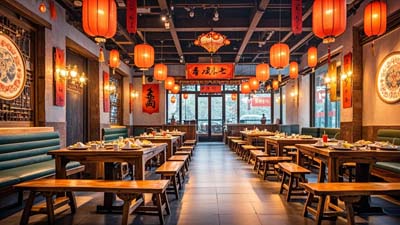Are you planning a trip to China? Then you should be prepared with knowledge of daily life in China. These four must-know facts will allow you to be one step ahead of your friends as you get to know Chinese culture and language.

In America, all toilets are accompanied by toilet paper for use. In China there are some exceptions: MOST of public toilets offer tissue. But some others don’t. Big difference!
Now take note: In some bathrooms, you will see a plastic basket (trash can) next to the toilet with tissue inside. Pay Attention! That is “厕纸 (cè zhǐ) toilet paper” that has already been used!
My friend told me a hilarious story once: An American traveled to China and went to small hotel in China. The first thing he did was go to use the “厕所 (cè suǒ) toilet”. When he entered the room, he saw that the only toilet paper in the bathroom was in small pieces in a plastic basket next to the toilet. He couldn’t find a toilet paper roll, so he went ahead and used a few pieces. He thought those pieces were unused for visitors. Boy, was he wrong! These were used pieces of toilet paper. Had he known, I’m sure he would have asked for some help to get unused toilet paper. It was terrible when he found out the truth!
Why is there sometimes only used toilet paper in the bathroom in China? Well, because many buildings in China are older and therefore people worry the pipes will be clogged by too much tissue. So if you see pieces of toilet paper in a basket and no roll of toilet paper, assume that this paper has already been used. And if you bring your own, don’t flush it down the toilet, so you are kind to the owner of the house.

If you go for a dinner with your Chinese friends, most of the time, your Chinese friends will “劝酒 (quànjiǔ) ask you to drink alcohol.” It is a normal and common for the host to encourage you to do so in China. This custom shows that the host wants you to feel their enthusiasm for your coming, and give you a hearty, authentic warm welcome as a guest in their home.
Do you feel it’s a bit impolite for a friend of yours to urge you to drink? This difference from East and West represents another cultural difference.
How do you deal with this cultural peer pressure? You tell the host you choose not to drink, at the very beginning of the dinner. Address the issue head on because if you accept the first glass of wine, your Chinese friends will urge you to go for the second, third glass, etc.

Seriously, you will experience the most terrible traffic you have ever seen in your life. If you know even a little bit about the size of the Chinese population, you can see how it would be very difficult to enjoy a trip out to your favor sightseeing destination on a Chinese holiday. People gather around bus stations and train stations, and every major destination is packed with lines of people. Additionally, the price of sightseeing tickets, hotels, and food skyrockets. If you have to travel during Chinese holidays, plan for months in advance. Book the necessary tickets for transportation and hotels online ahead of time. And be prepared to see “人山人海 (rénshānrénhǎi) huge crowds of people” at any of the popular destinations.

Normally, you don’t need to “给小费 (gěi xiǎo fèi) tip” waiters in Mainland China. In western countries, tip is a common and normal way to recognize a reception of services and then return gratitude and offer payment for these services. It is expected in restaurants and cafes. However, when you go to a restaurant in China, you rarely see someone give the waiter any tips. It is said that the government has set some rules that the travel agencies, tour guides and other establishments can not charge tourists tips. If they do, they will be fined a considerable amount of money by the Chinese government.
Nǚ cèsuǒ zài nǎlǐ?
女 厕所 在 哪里?
Where is the ladies’ toilet?
Zài zhōngguó, quànjiǔ shì yì zhǒng cānzhuō lǐyí.
在 中国, 劝酒 是 一 种 餐桌 礼仪。
Urging other people to drink is a table manner in China.
Nǐ gěi fúwùyuán xiǎofèi le ma?
你 给 服务员 小费 了 吗?
Have you given the waiter a tip?
Do you have a funny or interesting story about daily life in China? Share them with us by commenting below!

Which of the following scenarios is FALSE when it comes to common aspects of daily life in China:
A. Sometimes toilet paper is not offered in restrooms.
B. There are huge traffic jams on public holidays.
C. Hosts do not encourage their guests to drink alcohol when they invite them over to dinner.
D. Normally you don’t need to tip waiters in Mainland China.
Jennifer Zhu is a professional Chinese teacher from eChineseLearning. She has many years of Chinese language teaching experience and received her B.A. and M.A. in “Teaching Chinese as a Second Language.”



